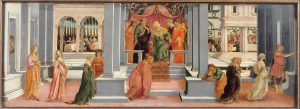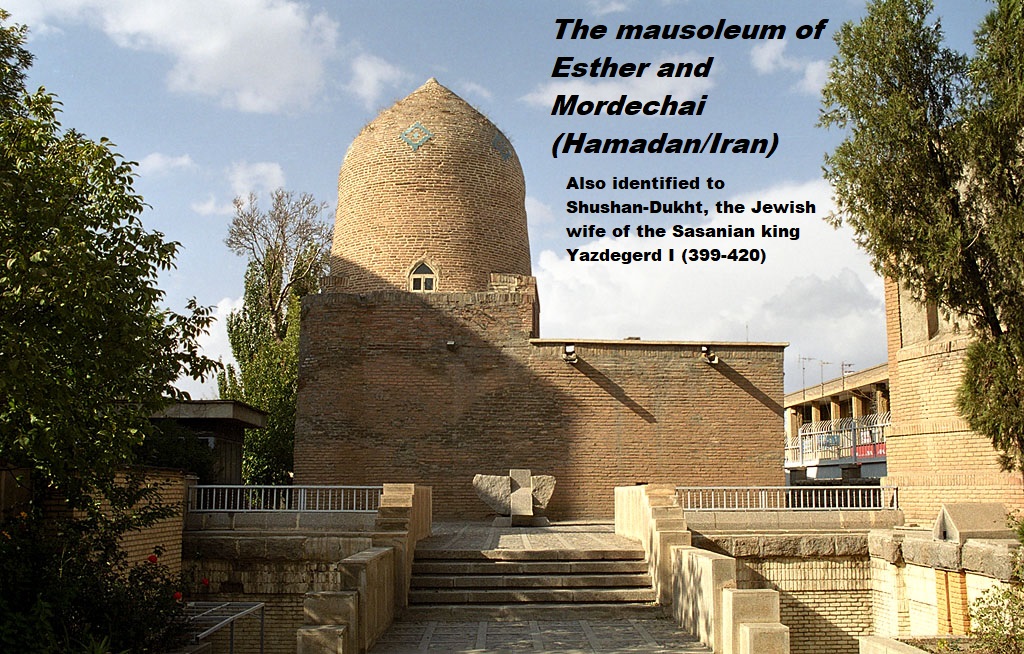
490 BC to 470 BC, Psalm 23: Esther
This site was first built in French (see www.147thgeneration.net). The English translation was mainly done using « google translation ». We have tried to correct the result of this translation to avoid interpretation errors. However, it is likely that there are unsatisfactory translations, do not hesitate to communicate them to us for correction.
(for that click on this paragraph)
Summary
This generation is from the years 490 BC to 470 BC
According to our count, this generation is the 23rd generation associated with Psalm 23. It is in this Psalm 23 that we therefore find an illustration of the facts of this generation.
As the prophets predicted, the First Temple was destroyed in 576 BC by Nebuchadnezzar who also exiled most of the Jews from Judea to Babylon. This exile, as Jeremiah predicted, is limited to 70 years. It is therefore finished in this generation, but in fact while the resettlement in the land of Israel has started well, it is far from complete, and the majority of the Jews are still in Persia living in a golden exile.
As an omen for all the coming exiles of the Jewish people, a persecutor comes to darken it, Haman wants the extermination of the Jewish people throughout the Persian kingdom.
This story and its conclusion are the subject of the book (Megillat) of Esther which is read every year on the feast of Purim. History which therefore unfolds in this generation.
Talk
Ahasuerus
This generation is marked by the reign of Xerxes I, better known under the name of Ahasuerus, successor of King Darius. The resettlement of the people of Israel on their land is not yet fully realized, only a core of Jews was able to settle there and begin rebuilding the Temple. The new cycle began the previous generation, the new Temple will be destroyed again and a new exile will take place that will last this time well over seventy years, since it is still not completed today.
In the previous generation, David had raised some concerns about his people’s ability to survive for this new cycle. This generation and the next bring him the answer.
The next will be that of Ezra who will reorganize and reorient his people in the land of Israel and thus show the capacity of the people of Israel to rebuild.
This generation, that of Esther, shows her ability to fight her enemies even without military means, only by the strength of her faith.

This generation, that of Esther, shows her ability to fight her enemies even without military means, only by the strength of her faith.
This event is celebrated by the people of Israel until today through the feast of Purim.
Golden exile
Esther’s story takes place in Susa, which Darius established as the capital of her kingdom. Suse, is part of Mesopotamia, in the fertile crescent, which is the sign of a golden exile for the Jews who live in the Persian empire and who benefit from its rise.
This is what the beginning of the psalm evokes:

- Song of David. The Lord is my shepherd; I shall not want.
- He causes me to lie down in green pastures; He leads me beside still waters.
Whatever the condition of the people of Israel, without or without their land, they can count on the support of their God.
The exile in Persia is comfortable as indicated by the green pastures that symbolize the opulence of the Persian kingdom. Opulence evoked in the book of Esther, which is read every year in the Jewish liturgy on the occasion of the feast of Purim.
It is within this opulence that the Jews of this period live in exile.
Exile has not always been synonymous with misfortune for Jews. He has known throughout his history, since the destruction of the first Temple, periods of prosperity and relative peace as this exile in the Persian kingdom. Unfortunately it does not last. It always ends up coming up an unexpected enemy who comes to question this insouciance.
Aman
Despite this, the Jewish people are going through the centuries and the enemies of yesterday have all disappeared, while the Jewish people are still there.
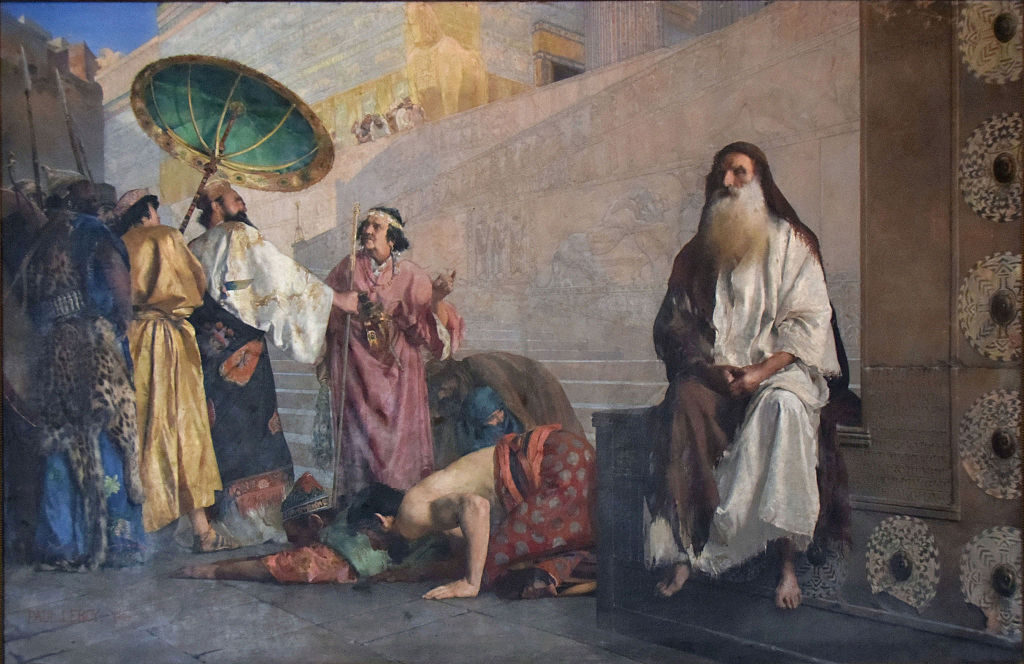
In Susa, it is Aman who is the designated enemy. A very particular prototype because he is the descendant of Amalek, the first people who dared to attack the people of Israel, while he had just been elected by God.
This act to the people of Israel and to God Himself made one of the commandments imposed on the people of Israel to eliminate Amalek and his descendants.
It was King Saul who should have executed this command, but he failed.
Thus in the generation that interests us, a descendant of Amalek wants to try to exterminate the people of Israel, thus showing the importance of Saul’s fault.
Aman’s plans will be foiled, and nothing will finally happen to the Jewish community of Persia.
Esther
God had indeed created the remedy before evil, because Esther, who will allow this result, was chosen by Ahasuerus before Aman initiated his plans against the people of Israel. Each time, it will be so, the people of Israel will escape the attacks of their enemies, although unfortunately in many cases it will not come out unscathed from these attacks.
So even during the Second World War, the Nazi power was destroyed before it could completely reach its plans. The Nazi empire was one of the most powerful in history but also one of the most ephemeral.
If it had not lasted for a whole generation, the people of Israel would have been permanently destroyed.
It was not so, because even before the Nazi regime begins its dark work, those who will contribute to its defeat are already in place. Stalin, who himself will be a persecutor of the Jews, was already there in the 1920s, and it is likely that no other Russian leader could have won the victory against the Nazis. Likewise Churchill was already there before the advent of the Nazi Reich ready to act at the opportune moment to assemble the other allied forces against Germany.
Thus, in spite of this harshness of exile, where the enemies of the people of Israel never cease to desire its loss, the people of Israel remain faithful to God, for they know that God never abandons Him completely and that only fidelity to God God, with his covenant and with his commandments allows him to cross the night staying safe and to perceive the dawn.
This is what the continuation of the psalm expresses:

- He restores my soul; He leads me in paths of righteousness for His name’s sake.
- Even when I walk in the valley of darkness, I will fear no evil for You are with me; Your rod and Your staff-they comfort me.
Turn the spell around
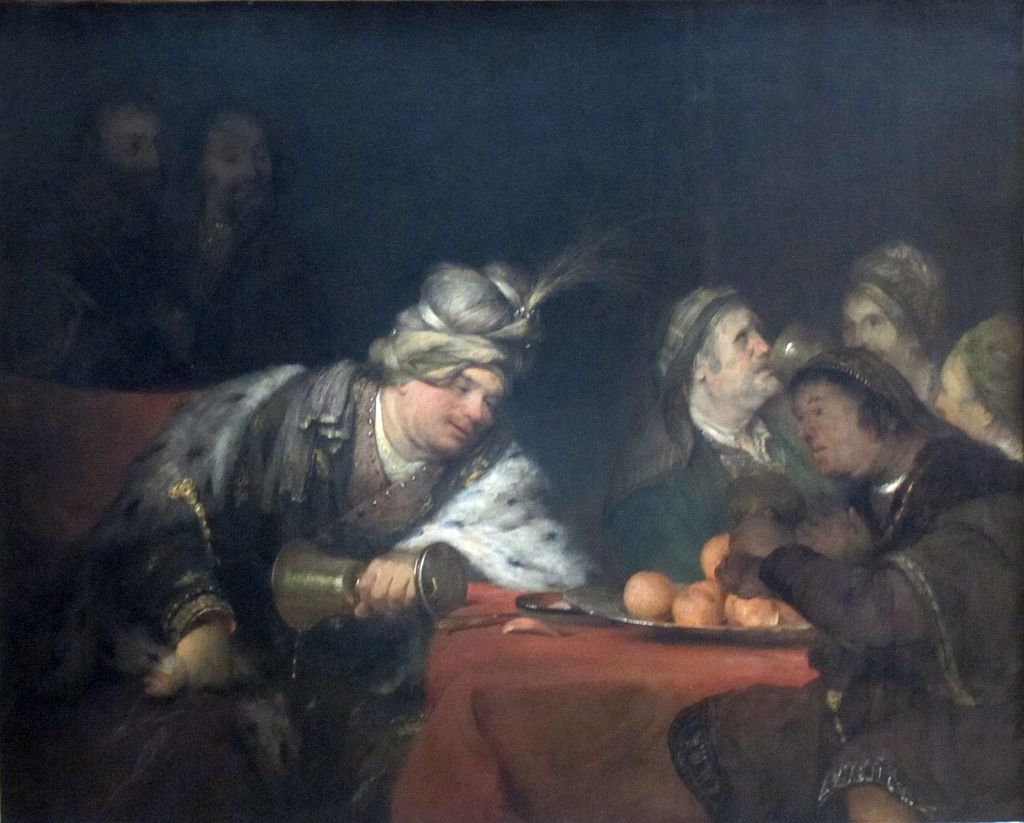
In the story of Esther, the Jews of Susa voluntarily took the fast to thwart the fate that Aman wanted to reserve for them. The voluntary fasting of the Jews was a recognition of their faults and expressed the will to be saved by the improvement of their conduct rather than by an unjustified divine mercy (Jewish tradition imputes the arrival of Aman to the participation Jews from Susa to the king’s feast in disrespect of the Hebrew rules).
Following this awareness of the Jews of Susa, Esther could turn the spell around. She managed to meet the king without being condemned by him. She takes the opportunity to ask that the King and Aman attend a feast she gives.
In fact, before these events, Aman had succeeded in promulgating by the King the decree that ordered the extermination of all the Jews of the kingdom. Following Esther’s first invitation, Aman bolded and went to build the gallows to hang Mordecai. The reprieve given to Aman (Esther could have made his request to the king during the first meal) allowed to justify the sentence that will have to fall on Aman and his family, by the relentlessness of these to want the loss of the Jews of the Kingdom (what the psalm expresses by « my cup overflows« , which can be interpreted as the cause is now widely heard).
You set a table before me in the presence of my adversaries
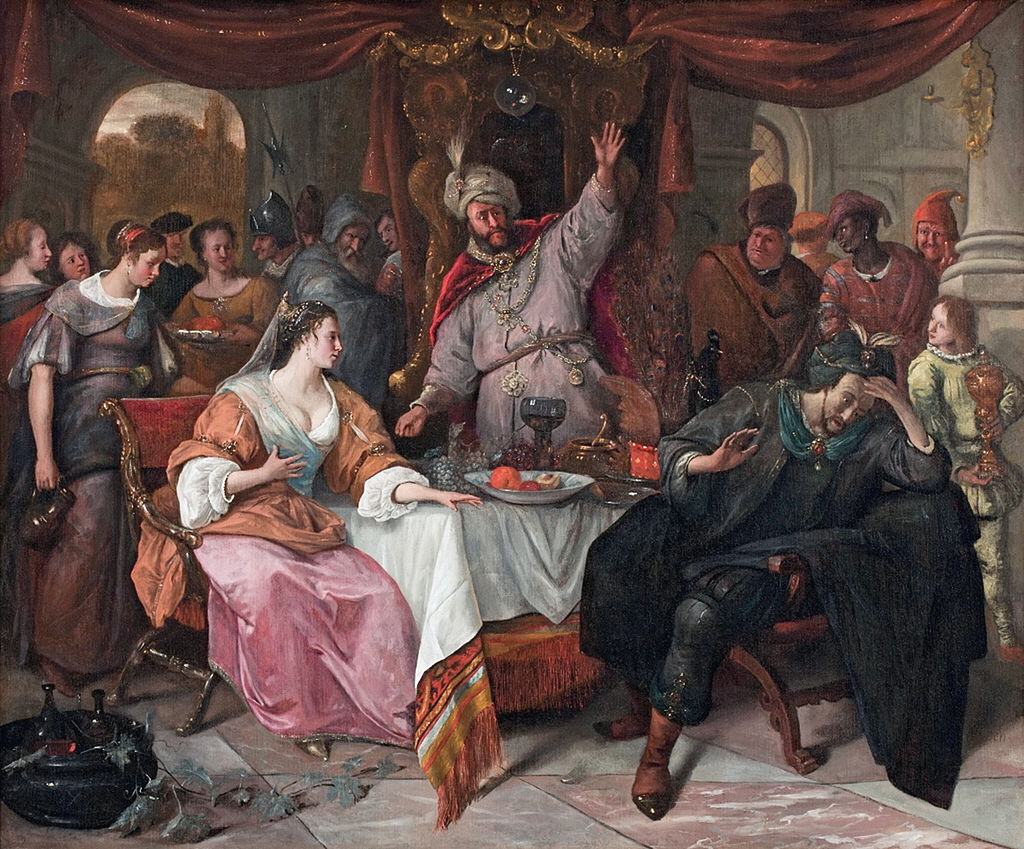
So came the second meal given by Esther:
- So [1] the king and Haman came to drink with Queen Esther.
- And the king said to Esther also on the second day during the wine feast, « What is your petition, Queen Esther, and it shall be given to you. And what is your request, even up to half the kingdom, and it shall be granted. »
- And Queen Esther replied and said, « If I have found favor in your eyes, O king, and if it pleases the king, may my life be given me in my petition and my people in my request.
- For we have been sold, I and my people, to be destroyed, to be slain, and to perish; now had we been sold for slaves and bondswomen, I would have kept silent, for the adversary has no consideration for the king’s loss. »
- And King Ahasuerus said, and he said to Queen Esther, « Who is this and where is he, who dared to do this? »
- And Esther said, « An adversary and an enemy, this evil Haman! » And Haman became terrified before the king and the queen.
- And the king arose in his fury from the wine feast to the orchard garden, and Haman stood to beg for his life of Queen Esther, for he saw that evil was determined against him by the king.
- Then the king returned from the orchard garden to the house of the wine feast, and Haman was falling on the couch upon which Esther was, and the king said, « Will you even force the queen with me in the house? » The word came out of the king’s mouth, and they covered Haman’s face.
- Then said Harbonah, one of the chamberlains before the king, « Also, behold the gallows that Haman made for Mordecai, who spoke well for the king, standing in Haman’s house, fifty cubits high! » And the king said, « Hang him on it! »
- And they hanged Haman on the gallows that he had prepared for Mordecai, and the king’s anger abated.
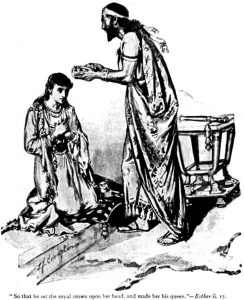
Aman’s attitude could not be accepted because Esther had the status of queen. She was first prepared as any concubine of the king then was chosen as Queen by the King.
All of these events are illustrated in the following verse of the psalm:

- You set a table before me in the presence of my adversaries; …
- It was during the meal organized in the presence of Aman, enemy of the people of Israel, that the fate could be returned.
- … You anointed my head with oil …
- Esther was Queen
- … my cup overflows.
- It was not until Aman went to the end of his plans for it to be punished.
Following the death of Aman, the decree he had obtained from the king is canceled and all his relatives are eliminated.
This episode is a good illustration of God’s benevolence for his people, even in the hardships of exile and the assurance that the people of Israel will eventually find their place with God. This partially answers the concerns that David had raised in the previous Psalm (attached to the previous generation).
This conclusion is thus in keeping with the conclusion of the Psalm:

- May only goodness and kindness pursue me all the days of my life, and I will dwell in the house of the Lord for length of days.

[1] Esther – Chapter 7


